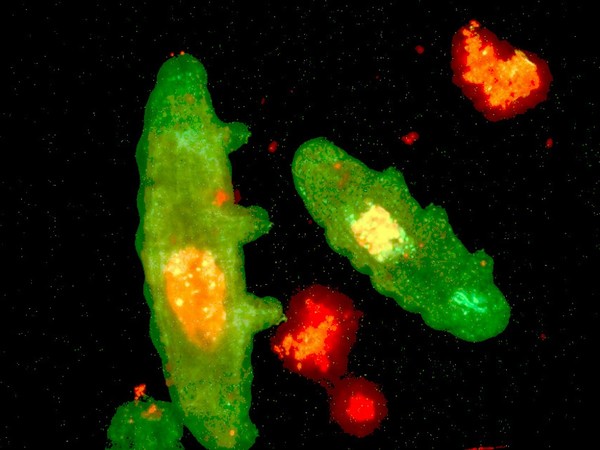For several years now, a group of scientists from the Department of Experimental Biology of the Faculty of Science and the Institute of Molecular and Translational Medicine (IMTM) of the UP Faculty of Medicine and Dentistry have been penetrating the mysterious world of extremely resistant tardigrades. With the help of high school students, the experts are collecting data on the occurrence of tardigrades in the Czech Republic and are trying to grow these microorganisms in the laboratory. Using transcriptomic and metabolomic approaches, they are then trying to understand the mechanisms thanks to which tardigrades can survive massive doses of radioactive radiation and extreme temperatures.
“Tardigrades are microscopic organisms known for their resistance to stress, including radiation. They are commonly found on moss, decaying leaves, and in soil. Because of their hardiness, they are a favourite organism of astrobiologists, who study their ability to survive in space. We focus mainly on their resistance to ionising radiation and DNA-damaging substances,” said Jiří Voller, coordinator of the project.
In April, scientists from the Faculty of Science and the IMTM of the Faculty of Medicine organised an event in Olomouc called Meeting of Tardigrade Hunters, to which they invited high school students and others interested in these remarkable microorganisms. Most participants helped the organisers, Jiří Voller and Dominik Vítek, with the collection of biological material for isolating the tardigrades.
“The aim of our project is to isolate new species of tardigrades and establish their cultures. We will then use them to verify the results of a previous study on the effect of radiation on tardigrades that we have been cultivating for a long time. This data was also generated thanks to the support of the Igráček programme for the team of PhD students from the IMTM and the Department of Experimental Biology,” added Vítek.
In addition to a tour of the laboratories, 15 students from across Moravia listened to lectures focused on the stress resistance of tardigrades and the possibilities of growing them, the biology of sleep, and how to measure and combat ageing. Jitka Nováková from the Valašské Klobouky Gymnasium and Jakub Pavlík from the Přerov Gymnasium presented their research within the Badatel project at the event, which includes the exposure of several species of tardigrades to radiation in the VR-1 reactor at the Faculty of Nuclear Sciences and Physical Engineering of Czech Technical University in Prague. They also helped with the organisation of the meeting. “This year the event was intended for students from outside Olomouc, and next autumn we plan to ask students from Olomouc to help with the tardigrade hunt,” said Voller.
